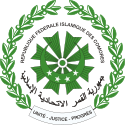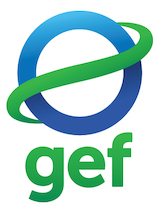Adapting Water Resource Management in Comoros to Increase Capacity to Cope with Climate Change
Project Overview
Climate change is likely to adversely affect the Comoros by resulting in: i) changes in rainfall levels and patterns; ii) increased temperatures; iii) sea level rise (and subsequent salinization of critical coastal aquifers as a result of salt water intrusion); and iv) an increased frequency of climatic hazards (such as tropical cyclones, droughts, episodes of heavy rainfall and flooding). Exacerbating these climate change impacts are the inherent environmental vulnerabilities of the Small Island Developing States (SIDS) (including small land area, susceptibility to natural disasters, geographical isolation, limited natural resources and sensitive ecosystems) of which the Comoros is part. This, superimposed on existing anthropogenic practices (such as the quickening pace of deforestation rates for agricultural production), threatens water security, food security, economic growth and the livelihoods of communities within the Union of the Comoros.
Source: UNDP Comoros Project Document (August 30, 2010)
Project Details
Climate change and variability (e.g. variations in rainfall, increase in temperature, sea level rise and increased frequency in climatic hazards) have a negative impact on water supply and quality in the Comoros by reducing availability of water and dilution of contaminants (e.g. pollutants, salts and sediment). This will continue to be the case unless timely adaptation interventions are implemented. Indeed, water security and quality have been identified by the Comoros Poverty Reduction and Growth Strategy reports as among the most critical problems facing the Comoros. Additionally, a vulnerability survey undertaken during the NAPA (2006) process listed the water sector as being the second most vulnerable sector to climate change. The problem is exacerbated by inadequate water resources management including inter alia: i) limited and inadequate water supply; ii) inadequate infrastructure and insufficient water treatment and; iii) quality monitoring has resulted in poor access to potable water. Moreover, people who do have access to drinking water frequently suffer from waterborne diseases due to its poor quality.
Comorian communities, autonomous islands' governments, and the national government presently lack the technical capacity, management capacity, physical resources and financial resources to overcome or cope with water resources management in the context of worsening climatic conditions. The goal of the project is to adapt water resource management to climate change in the Comoros whilst the project objective is to reduce the risk of climate change on lives and livelihoods from impacts on water resources in the Comoros. In so doing, this project will implement the adaptation priority increase in water supply and contribute to the adaptation priority improvement of water quality, identified during the National Adaptation Programme of Action (NAPA) process. The project will work on the three islands that constitute the territory of the Comoros with a focus on improving water resources management to increase water supply and quality under changing climatic conditions. To achieve this, the following outcomes will be delivered:
- Institutions at a national (i.e. Ma-Mwe and ANACM) and community (i.e. UCEA and UCEM) level strengthened to integrate climate change information into water resources management
- Water supply and water quality improved for selected pilot communities to combat impacts of climate change
- Awareness and knowledge of adaptation good practice increased for continued process of policy review and development
Source: UNDP Comoros Project Document (August 30, 2010)
Key Results and Outputs
- Outcome 1: Institutions at a national (i.e. Ma-Mwe and ANACM) and community (i.e. UCEA and UCEM) level strengthened to integrate climate change information into water resource management
- Outcome 1.1: Information on climate change risks to water availability in Comoros improved
- Outcome 1.2: Capacity to assess and monitor changes in water supply and quality (given climate change projections) developed
- Outcome 1.3: Preparation and provision of improved climate information for water resource management policies and spending plans
- Outcome 1.4: Integration of improved climate information with water resource management policies and spending plans, and other relevant policies
- Outcome 1.5: Capacity development plan for policy review and design among decision-makers developed based on best known scientific and technical evidence-base
- Outcome 1.6: Capacity development plan for policy review and design among decision-makers implemented
- Outcome 2: Water supply and water quality for selected pilot communities to combat impacts of climate change improved
- Output 2.1: Technologies to improve water access and quality that mitigate climate change risks piloted, e.g. soil conservation measures, water harvesting, remedial work on existing boreholes
- Output 2.2: Community members trained to manage adaptive water interventions sustainably
- Outcome 3: Awareness and knowledge of adaptation good practice for continued process of policy review and development increased
- Output 3.1: Knowledge products developed on lessons learned for policy makers, communities and donors throughout the project
- Output 3.2: Learning disseminated through platform for national learning and sustainability
- Output 3.3: Disseminate Comorian experience in knowledge networks related to water and climate change, including ALM, GAN and IW Learn
Source: UNDP Comoros Project Document (August 30, 2010)
Reports and Publications
Project Brief / Fact Sheet
UNDP Printable Photo Essay: IRRIGATION KITS, WHEELBARROWS AND MACHETES (FR)
UNDP Printable Photo Essay: IRRIGATION KITS, WHEELBARROWS AND MACHETES (SP)
UNDP Printable Photo Essay: IRRIGATION KITS, WHEELBARROWS AND MACHETES (EN)
Case Study
ProDocs
Monitoring and Evaluation
Project Start:
- Project Inception Workshop: will be held within the first 2 months of project start with those with assigned roles in the project organization structure, UNDP country office and where appropriate/feasible regional technical policy and programme advisors as well as other stakeholders. The Inception Workshop is crucial to building ownership for the project results and to plan the first year annual work plan.
Daily:
- Day to day monitoring of implementation progress: will be the responsibility of the Project Manager, based on the project's Annual Work Plan and its indicators, with overall guidance from the Project Director. The Project Team will inform the UNDP-CO of any delays or difficulties faced during implementation so that the appropriate support or corrective measures can be adopted in a timely and remedial fashion.
Quarterly:
- Project Progress Reports (PPR): quarterly reports will be assembled based on the information recorded and monitored in the UNDP Enhanced Results Based Management Platform. Risk analysis will be logged and regularly updated in ATLAS.
Annually:
- Annual Project Review/Project Implementation Reports (APR/PIR): This key report is prepared to monitor progress made since project start and in particular for the previous reporting period (30 June to 1 July). The APR/PIR combines both UNDP and GEF reporting requirements.
Periodic Monitoring through Site Visits:
- UNDP CO and the UNDP RCU will conduct visits to project sites based on the agreed schedule in the project's Inception Report/Annual Work Plan to assess first hand project progress. Other members of the Project Board may also join these visits. A Field Visit Report/BTOR will be prepared by the CO and UNDP RCU and will be circulated no less than one month after the visit to the project team and Project Board members.
Mid-Term of Project Cycle:
- Mid-Term Evaluation: will determine progress being made toward the achievement of outcomes and will identify course correction if needed. It will focus on the effectiveness, efficiency and timeliness of project implementation; will highlight issues requiring decisions and actions; and will present initial lessons learned about project design, implementation and management. Findings of this review will be incorporated as recommendations for enhanced implementation during the final half of the project’s term.
End of Project:
- Final Evaluation: will take place three months prior to the final Project Board meeting and will be undertaken in accordance with UNDP and GEF guidance. The final evaluation will focus on the delivery of the project’s results as initially planned (and as corrected after the mid-term evaluation, if any such correction took place). The final evaluation will look at impact and sustainability of results, including the contribution to capacity development and the achievement of global environmental benefits/goals. The Terminal Evaluation should also provide recommendations for follow-up activities.
- Project Terminal Report: This comprehensive report will summarize the results achieved (objectives, outcomes, outputs), lessons learned, problems met and areas where results may not have been achieved. It will also lie out recommendations for any further steps that may need to be taken to ensure sustainability and replicability of the project’s results.
Learning and Knowledge Sharing:
- Results from the project will be disseminated within and beyond the project intervention zone through existing information sharing networks and forums.
- The project will identify and participate, as relevant and appropriate, in scientific, policy-based and/or any other networks, which may be of benefit to project implementation though lessons learned. The project will identify, analyze, and share lessons learned that might be beneficial in the design and implementation of similar future projects.
- Finally, there will be a two-way flow of information between this project and other projects of a similar focus.
Source: UNDP Comoros Project Document (August 30, 2010)
Links
Contacts
UNDP worked with some communities to improve water supply and water quality.





